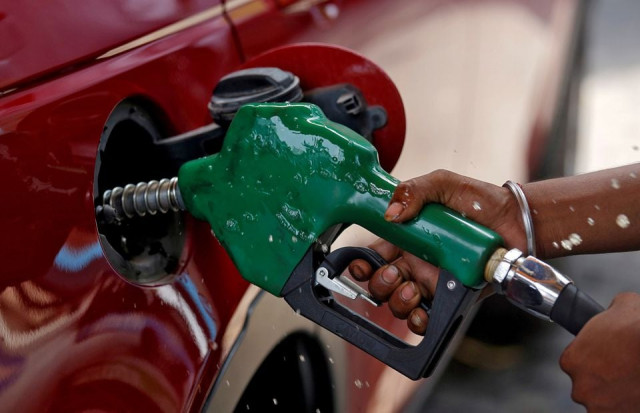Deregulation: only way forward
Overburdened by policies, oil sector has become unattractive for investment

Petroleum is a tightly regulated industry in Pakistan. Most of the petroleum product prices, including the two dominant fuels – motor spirit (petrol) and high-speed diesel (HSD), are set by the government.
Additionally, the government also determines how much money the downstream energy companies like refineries, OMCs (oil marketing companies), and fuel retailers can make from sales.
On top of this, there are numerous regulations that govern various aspects of the business of petroleum companies. The red tape and bureaucratic hurdles make things even more difficult.
This environment of excessive regulation has hurt both the consumer and the industry. Consumers experience fuel shortages with disruption in supplies as well as the threat of strikes or pump closures, all due to imperfections in the market caused by the government’s intervention.
On the other hand, petroleum companies frequently complain about low margins, struggle with weak profits, and face pressure on cash flows.
Overburdened by a plethora of policies and procedures, the petroleum sector, it seems, has become unattractive for investment, both from domestic and foreign players.
For years, no new major company has entered this industry by establishing a network of hundreds of petrol pumps or developing an oil refining plant. At the same time, the government has been trying to woo foreign investors who’ve reportedly shown interest in establishing an oil refinery, but that hasn’t worked so far.
Due to unfavourable policies, even local companies find it difficult to raise capital to significantly expand or upgrade their plants and facilities.
Petroleum is, after all, a capital-intensive industry where project costs can run into hundreds of millions to billions of US dollars. A new state-of-the-art oil refinery could cost $10 billion while the local industry needs around $4 billion to $5 billion to expand and upgrade plants, as per some estimates.
In the absence of a favourable business environment, no astute investor, local or foreign, will pour that much capital, especially if they can’t see a clear path to sustainable profits. And with the government setting prices of nearly all kinds of fuels and often making changes for the sake of political gains, the path forward looks murky.
The government used to set fuel prices once every month. This time frame was later reduced to a fortnightly basis to align prices more closely with the international market.
Some media reports suggest that the government is considering bringing down the revision period to a week.
The problem with this approach is that fuel prices often fail to capture the fundamentals of the market.
Globally, prices can change meaningfully in a single day. We’ve seen this happen in the past few months as prices rose from $90 a barrel to more than $130 in the aftermath of Russia’s attack on Ukraine, and then dropped back to the current levels of $90.
As a result, the product costs for refiners and OMCs, which procure crude oil and refined products from the international market, also move up and down. But pump prices only change twice a month, and that too if the government decides to move with the international trend.
This mismatch between the international commodity and domestic retail prices can sometimes benefit the petroleum companies. But usually, it works against the industry, since the governments are typically reluctant to make timely increases in prices but quickly slash them whenever required, thus putting petroleum companies at a disadvantage.
Petroleum companies can also be forced to sell fuel at a loss, with the government promising to settle their claims at a later date (through PDC) to push them towards profits. This, however, creates enormous liquidity issues for the oil industry.
A small petroleum company with limited financial resources may not survive in such circumstances for long.
The government’s role in setting fuel prices has, therefore, damaged the industry’s confidence, which may explain the lack of investment in this space. It is high time that the government completely deregulates prices of all fuels, as is the case in many developed and developing countries.
Petroleum companies should be allowed to sell fuel at whatever price they want, which will be underpinned by their cost structure. They should compete with each other in terms of prices, product quality, and other services.
As always, the consumers will be free to buy fuel from whoever they want. In this case, only those companies that can offer the highest quality of fuel at the lowest price with superior services will get customers and prosper.
The government will, however, retain some control over prices through PSO – the state-owned OMC that holds the largest share of fuel market.
The government can sell the fuel at whatever price it wants through PSO, and provide a level playing field to all OMCs through business-friendly policies so that they could compete effectively with the state-backed company.
Meanwhile, instead of determining prices, the regulator should encourage free and fair competition, protect the rights of consumers, and ensure no collusion or unfair business practice occurs. The government, on the other hand, should concentrate on collecting levies and taxes to meet its fiscal targets.
With the limited role of the government, reduction in red tape, and oil companies selling products at their own prices, the industry will likely become attractive to investors. This could bring much-needed capital to the sector and drive its modernisation and expansion. That will likely create jobs and spur economic activity.
The writer focuses on subjects of business and economics, specialising in the energy sector
Published in The Express Tribune, August 22nd, 2022.
Like Business on Facebook, follow @TribuneBiz on Twitter to stay informed and join in the conversation.


















COMMENTS
Comments are moderated and generally will be posted if they are on-topic and not abusive.
For more information, please see our Comments FAQ